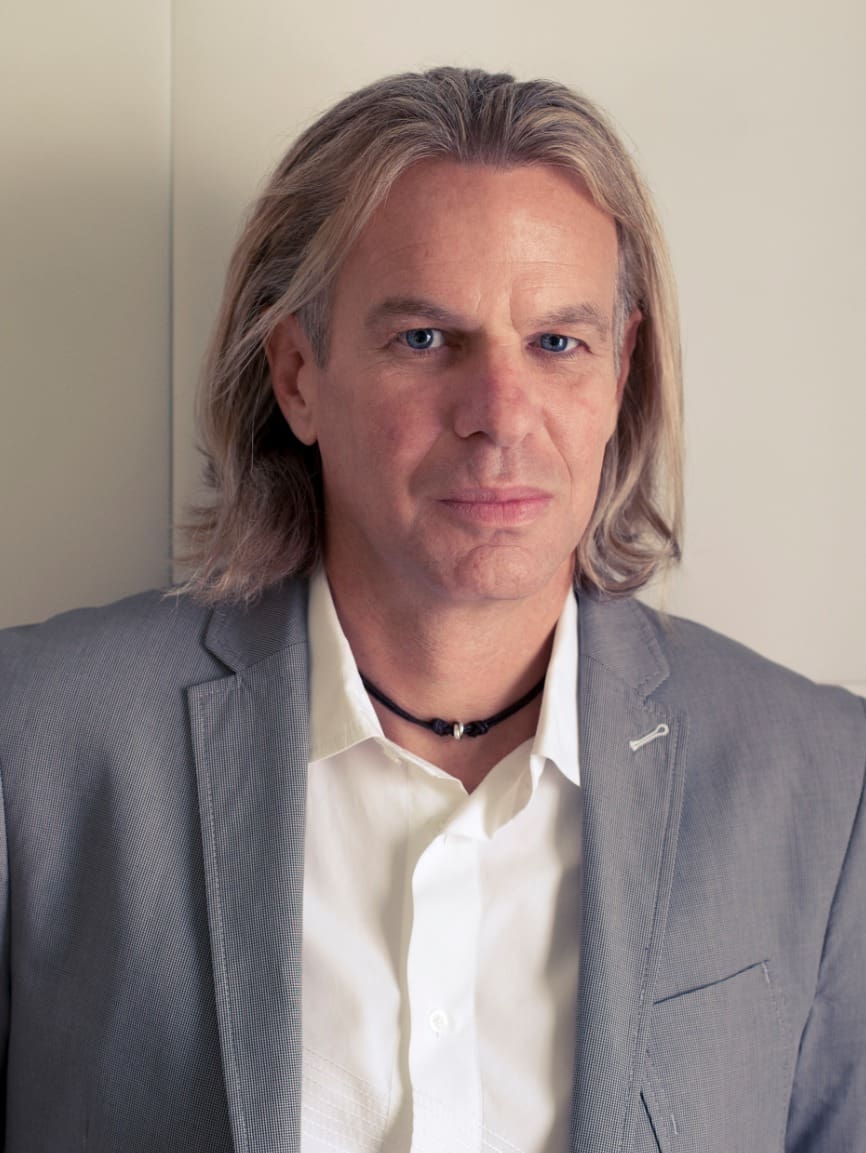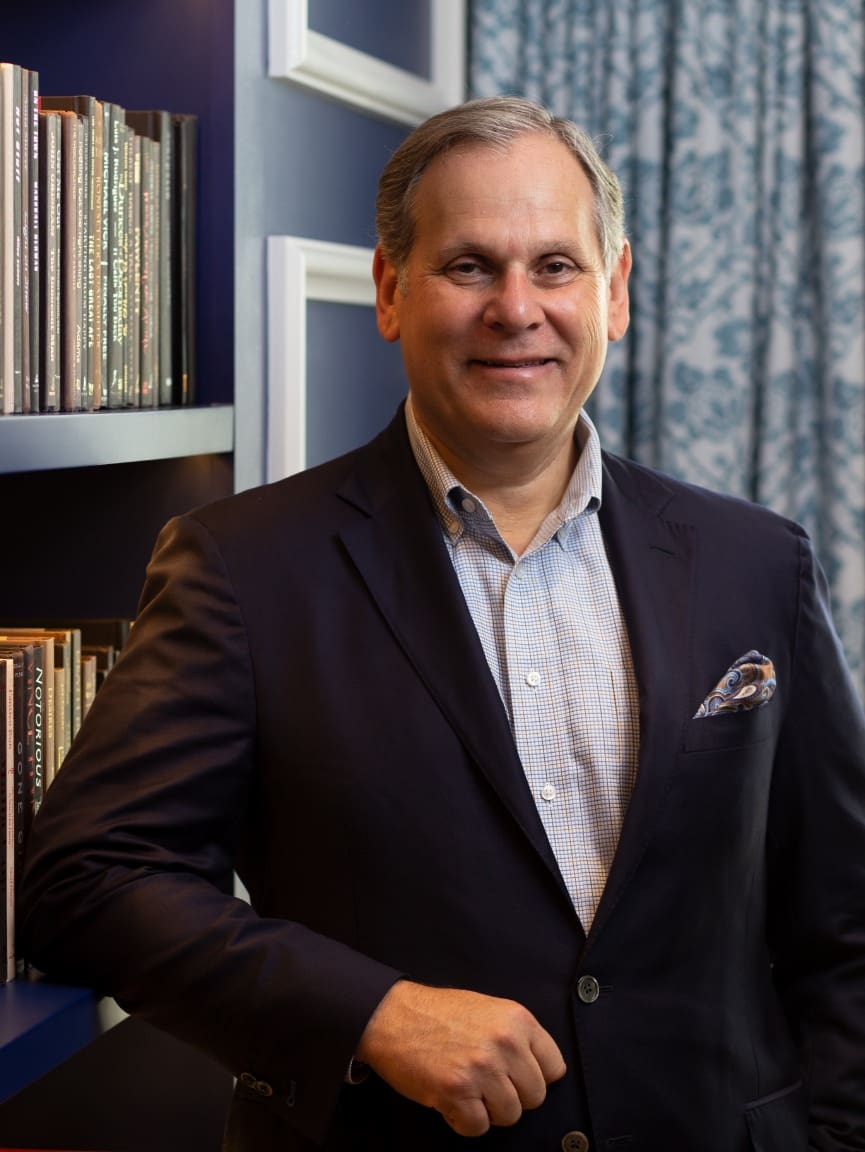Checking in on the future
Travel Courier talks to seven representatives from Caribbean and Mexican hotels & resorts and international brands to gauge what’s in store as they prepare to reopen their doors to travellers…
By ANN RUPPENSTEIN
Plexiglass at check-in counters. Two day interludes between guests for deep cleaning. The end of self-serve buffets. These are just a few examples of how travellers can expect a different experience at hotels and resorts on the other side of COVID-19.
As they prepare to welcome guests back, Travel Courier talks to seven representatives from independent hoteliers to big name brands about the work that’s going on behind the scenes to handle the returning wave of travellers, what the future entails with enhanced safety measures, advice for overcoming challenges as a new normal emerges and how the industry can be even better than before.

Adam Stewart
Deputy Chairman, Sandals Resorts International
The biggest piece of advice I can offer all of those in the industry right now is to continue to work together, not separately. I sit on a board dedicated to tourism in Jamaica, and no matter if we are competitors or not — we are all coming together to share what we have, what we can do, and how safely we can do it to promote travel back to the destination as a whole. We are all an ecosystem that works together — transportation, hotels, attractions, you name it. It sounds cliché but sharing is caring in times like these, and the more we can share, the quicker we will all bounce back to a better place in the travel industry.”
In the post-COVID-19 travel realm, Adam Stewart, Deputy Chairman of Sandals Resorts International, thinks there will be more emphasis on privacy and experiences in environments that don’t feel crowded.
“Privacy will be considered a new luxury,” he tells Travel Courier, noting that as a brand that’s built on the philosophy of romance, its resorts are already focused on offering secluded escapes like over-the-water hammocks made for two and suites outfitted with private plunge pools.
Gearing up to welcome travellers back, the company recently announced the Sandals Platinum Protocols of Cleanliness program, building on its existing protocols for heightened cleaning and sanitation measures, which is being implemented across all fifteen Sandals Resorts and three Beaches Resorts.
“We underwent a thorough research assessment on all points of guest contact throughout our resorts and we were able to focus on integrated advanced hygiene practices at over eighteen key touch points at our resorts,” he says. “We are also introducing new ways to guarantee the peace of mind guests need to enjoy their vacation with the utmost confidence while maintaining a safe social distance, including: new at-home to in-room check-in; adding more airport transfers with fewer guests per vehicle; extending check-in times between visitors; setting up a safe social distance across restaurants, bars and beaches; having our team members serve at the buffets, expanding the number of daily dive trips offered; replacing handshakes with a nod and a smile; and restricting elevator trips to one couple per trip.”
In addition to being transparent to instil trust and confidence, he recommends those in the field work together, not separately, in order to regain consumer confidence in travelling.
“I sit on a board dedicated to tourism in Jamaica, and no matter if we are competitors or not — we are all coming together to share what we have, what we can do, and how safely we can do it to promote travel back to the destination as a whole,” he says. “We are all an ecosystem that works together — transportation, hotels, attractions, you name it. It sounds cliché but sharing is caring in times like these, and the more we can share, the quicker we will all bounce back to a better place in the travel industry.”
As the company works to make sure it reopens to guests in the safest way possible, so that they can continue fuelling everyone’s wanderlust, he believes its brand affinity will become even stronger with these new protocols in place like the Platinum Protocols of Cleanliness.
“We have thousands of loyalty members already looking to travel back to our resorts once we reopen,” he says. “A combination of trust and quality — including cleanliness — will be critical to winning over any traveller as we look to the future of hotels and travel.”
Overall, he’s optimistic there is light at the end of the tunnel.
“The way I see things, travel is about curiosity, experiences and adventure. We love looking into the future of the next trip we have planned, the next experience we can try… it’s just what we do. With that said, we’re all being patient — taking things day by day, because travel will come back and when it does, we will be ready to welcome our guests back to the Caribbean with the biggest smiles,” he says. “Our industry will recover and continue to be one of the world’s most important industries in terms of employment, revenues and opportunities. People crave experiences, culture, food, entertainment, and the desire to travel the world is like none other. That’s what our industry is all about. So, stay strong, stay safe and stay committed – we will come out of this and we will continue to provide people with the gift of travel and all of its experiences.”

Amélie Brouhard
Vice-president Canada and Mexico, Club Med
One of the biggest challenges we are all facing is the magnitude of the crisis, it is unprecedented. We all used to design plans ahead of time, based on factors that we know — we have to think differently now and be creative. The whole industry and our business models are being pushed to extremes, and we all need to be in a constructive mindset and take the positive aspects. One of them is the incredible amount of learning we are achieving through this, but also the great support and cooperation between all of the industry players. The resilience and the professionalism of our partners has been remarkable, we could never thank them enough for their support.”
After experiencing confinement for two months and counting, Amélie Brouhard, Vice-president Canada and Mexico for Club Med thinks the desire to travel will be stronger than ever post COVID-19.
“The way to experience travel will be lived differently with a quality over quantity mindset,” she tells Travel Courier. “The emotional benefit of travel will be further enhanced because travellers will be looking for more freedom, and travel provides this feeling. This will give new opportunities to travel brands on how to communicate on the assets of their product offer. Regarding our brand, what we wish to highlight is the core value of our DNA — sharing happy moments with your loved ones with a togetherness feeling.”
In a world where a lot of changes happened and continue to happen, she’s confident travellers will target destinations and brands that are well-established.
“In this new norm, we have the advantage to operate low-density resorts that are respectfully integrated in their surrounding environments, leaving plenty of area to practice social distancing,” she said. “Guests will feel at ease as they get outdoors and enjoy a relaxing vacation experience through Club Med’s trademark included amenities, from land and water sports to expert childcare and expansive dining options.”
Club Med, which was established in 1950, just announced its new Safe Together program, which sees enhanced safety and hygiene procedures in its resorts, including Plexiglass protection on all service counters, including concierge and check-in, and operating at a maximum resort capacity of 65%.
“Our first North American resort to reopen on June 12 will be Club Med Sandpiper Bay in Florida with those new measures in place,” she said. “At Club Med, every point of contact with the clients has been considered in this new norm, to remain safe for both clients and employees; but by still keeping at its atmosphere and what makes our brand difference. For instance, during the evenings, where we used to offer one single show gathering, all guests at the same place, we will elevate this approach by offering several smaller happenings at the same time, so that clients won’t be all together in the same place. We will offer a live concert, acoustic music on the beach, an acrobatic show over the pool, family movie night under stars. This, among other examples, shows how the resort experience will evolve and how the spirit of the brand remains untouched.”
For Brouhard, one of the biggest challenges is the magnitude of the crisis.
“It is unprecedented,” she notes. “We all used to design plans ahead of time, based on factors that we know. We have to think differently now and be creative. The whole industry and our business models are being pushed to extremes, and we all need to be in a constructive mindset and take the positive aspects. One of them is the incredible amount of learning we are achieving through this, but also the great support and cooperation between all of the industry players. The resilience and the professionalism of our partners has been remarkable, we could never thank them enough for their support.”
As for advice to others in the travel industry, she says the key is to have a structured approach, to integrate business intelligence, and to be agile.
“From the early stages of the crisis we have been focused on detecting early signs of the market rebound, though qualitative and quantitative aspects we can monitor,” she adds. “Every decision we have made so far, has taken into great consideration experts advice combined with market realities. The key here is to be able to adapt and be agile, to be in the best interest of our partners, clients, and employees.”
In early May, Club Med conducted a survey among its client database to understand what their travel plans would be in a post COVID-19 world.
“Results were quite encouraging. About 50% of our clients wish to travel to our resorts before the end of the year. We noticed as well that two-thirds of our clients prioritize a beach vacation as their first travel plan,” she says. “With hygiene and safety coming at the top of client’s expectations in our survey with no surprise, we feel well-positioned for the rebound period when our clients will be ready to travel again.”

Jonathan Newbury
Senior Vice President of Strategic Development, Preferred Hotels & Resorts
The biggest challenge has been the speed and depth with which the global demand for hotel rooms dropped. I think it took everyone by surprise. There is no shortage of advice out there, but I would encourage hotel owners and operators to choose their partners carefully. This will be a slow and gradual recovery with many bumps in the road, and now is the time for all hoteliers, whether they are independent or part of a big hotel chain, to align themselves with the right partners who will provide the support they need to come out of this crisis stronger and more quickly.”
Jonathan Newbury, Senior Vice President of Strategic Development for Preferred Hotels & Resorts, which represents more than 750 hotels, resorts, residences, and unique hotel groups across 85 countries, says the hotel industry will see operational changes post COVID-19.
“There will be an enormous focus on engendering consumer confidence, specifically within the hotel sector: confidence that rooms are thoroughly cleaned and sanitized between each stay, and demonstratively so; confidence that hoteliers understand the continued need for strict social distancing measures between different parties of guests across communal areas, including food and beverage outlets, lobby areas, and fitness centres; and confidence that the hotel is part of something larger and is accountable, so that there is recourse for any concern or issue that could potentially arise,” he tells Travel Courier.
In addition to prioritizing guest safety and wellbeing with new sanitation policies, he says returning guests will have higher expectations than ever before, particularly in the luxury space.
“There are so many literal touch points in a hotel: elevator buttons, door handles, and stair rails, to name just a few, which means that health and hygiene standards will have to be clearly displayed, both as a written statement and in practice in every public area of the hotel,” he says. “Concern around the hygiene of buffets is a current hot topic and might be difficult to overcome in the short term without offering viable alternatives. Luxury hotels will provide more tableside service in socially distanced restaurant spaces with guests more likely to choose room service dining options.”
Another aspect that will see changes is among housekeeping practices for guestrooms and suites.
“Many hotels are already choosing to service rooms at check out only, reducing the risk of guest and staff infection,” he says. “We are also seeing increased scrutiny of air conditioning. Hoteliers want to be able to reassure guests that airborne infections are not spread on property and are looking at their air conditioning systems use of fresh or recycled air and if it is recycled, whether it is sufficiently filtered.”
For Newbury, the biggest challenge has been the speed and depth with which the global demand for hotel rooms dropped.
“I think it took everyone by surprise,” he says. “There is no shortage of advice out there, but I would encourage hotel owners and operators to choose their partners carefully. This will be a slow and gradual recovery with many bumps in the road, and now is the time for all hoteliers, whether they are independent or part of a big hotel chain, to align themselves with the right partners who will provide the support they need to come out of this crisis stronger and more quickly.”
Being open and transparent is key to building consumer confidence, he says, which means communicating hygiene policies clearly on all channels and enabling guests to maintain their personal space beyond the guestroom.
“We are encouraging our hotels to find creative ways to recalibrate the luxury hotel experience, ensuring that cleanliness doesn’t become clinical, and that the practicalities feel personal and playful. This is about the extent of the hotels’ abilities and all we can control. The rest will be up to government regulations and the major airlines.”
Preferred Hotels & Resorts is learning from its member hotels in China and across Asia that are back up and running and welcoming guests, albeit mainly domestic travel. The company recently published a white paper entitled New Rules to be Market Ready, which he said its member hotels found useful as they prepare to re-open in a new marketplace, post COVID-19.
“We understand that even when travel restrictions are wound down across markets in the Americas and Europe, the return to travel will be a gradual process and that flexibility — in the terms offered to individual consumers and groups — and agility in terms of sales and marketing efforts to meet market demand when it is ready will be key to operational success,” he says.

Tony Cortizas
VP of Global Brand Strategy, Meliá Hotels International
During the lockdown we have learned to appreciate things that we previously took for granted. I firmly believe that travel will quickly fall into that category and we have an opportunity to rediscover the romance of travel that was perhaps being lost. I would also implore the industry as a whole to resist the urge to discount our way out of this. Discounting might grab market share and serve as a quick fix but it will not generate demand when the issue is confidence and trust. We would do well to remember that price and value are two different things. The pressure that we are all under is immense, however, to survive we have to be sustainable in every sense.”
Tony Cortizas, VP of Global Brand Strategy for Meliá Hotels International, thinks the whole travel experience will change based on the new normal.
“The hospitality industry is based on the concept of service and the biggest challenge we have as hotels is to reinvent our respective service cultures around these new protocols. The protocols themselves will quickly become no more than what is expected and will do little to define a brand per se. Ironically, I believe that now, more than ever, there is an opportunity for us to deliver a highly curated experience to our customers both inside and outside our hotels. Confidence and trust are the new currency and in many ways this will be a comeback for brands,” he tells Travel Courier. “I think that the previously prevailing market trends to live travel like a local is on ice for now. Customers will still be looking for an exceptional experience but in a more predictable form.”
Cortizas sees the shift away from buffets being a step in the right direction towards being waste free. Meliá’s buffet restaurants will operate market-style with its chefs making orders on request. The company also partnered with Bureau Veritas, a world leader in laboratory testing, inspection and certification services, to certify its new safety processes and protocols called StaySafe With Meliá.
“Reducing capacities and introducing new cleaning protocols are some of the measures you would expect,” he says. “We are also introducing virtual site inspections for groups, digital concierges, takeaway meal services which are a little more out of the box. But I am most excited about the new job descriptions which have been implemented for our Guest Experience Managers focusing on our customers’ emotional well-being.”
He sees the biggest challenge for those in the industry being able to clearly see what’s ahead.
“There are so many variables in play that it is almost impossible to have a clear view of what lies ahead in the short and midterm,” he points out. “Borders need to reopen, flights need to come back, jobs need to be restored, and confidence needs to return to name just a few. However, one thing is for sure — travel will come back. Our job is to be ever ready and to embrace the future and all the change that lies ahead.”
During the lockdown, he says people have learned to appreciate things that they previously took for granted.
“I firmly believe that travel will quickly fall into that category and we have an opportunity to rediscover the romance of travel that was perhaps being lost. I would also implore the industry as a whole to resist the urge to discount our way out of this. Discounting might grab market share and serve as a quick fix but it will not generate demand when the issue is confidence and trust. We would do well to remember that price and value are two different things. The pressure that we are all under is immense however to survive we have to be sustainable in every sense.”
Although the macro issue of consumer confidence goes far beyond anything those in the industry can control, he stresses that brand equity is important right now in terms of building customer trust.
“I am appreciating everyday for what it is and taking the good from it,” he adds. “One thing that we should all have learned from this is that we are not in control. We go through life thinking that we can plan and control everything and this is a lesson in faith. Faith is trusting in what we cannot see — there is simply no other way to handle it.”

Graeme Davis
President, Baha Mar
We’re in consistent communication with the tourism and airline partners in The Bahamas and globally to develop reopening plans together that will ensure a collaborated effort that’s timed safely for international travellers and The Bahamas. In working closely with the government of The Bahamas and our airline partners, we can promise our guests from the US, Canada, the UK and other key international markets that airlift is available to them to easily and safely travel to The Bahamas. As a destination resort, it is imperative to work in collaboration with our partners across tourism and destination marketing – the success of The Bahamas and the success of Baha Mar are one and the same.“
As part of an industry that’s resilient and adaptable, Graeme Davis, President at Baha Mar, is confident that travel will prevail once again.
“Travel will look different as we head towards the early recovery phases in the near future. And, through these changes, travellers will need to feel comfortable with both how they travel and where they travel,” Davis tells Travel Courier. “At Baha Mar, that means new ways to maintain social distance, heightened sanitation processes and increased cleaning, evolving the ways our associates interact with guests and more. But at the heart of travel is the cherished experience that each new trip will bring, and that will not change.”
Privacy will be more important than ever, he says noting that Baha Mar will focus on its intimate experiences like spacious cabanas at The Baha Bay Beach Club, options for outdoor dining, private art classes at The Current and intimate encounters with the property’s flamingos and nurse sharks.
“We are focusing on how we can best provide our guests with physically distanced experiences that while naturally designed into the resort destination, have been reimagined through the lens of social distance and safety,” he says.
Davis believes technology may be one of the greatest advantages to impact hotels with the ability to check into guest rooms, open doors, and sign for cheques by scanning a RFID bracelet.
“Service post COVID-19 will be different, not just in terms of safety protocols but in maintaining warmth and connection between associates and guests, which The Bahamas has always been known for throughout the years,” he says. “Our associates will now smile with their eyes and the need to connect emotionally with our guests, even from six feet apart, will be at the core of our training as we look ahead.”
At Baha Mar, one of the biggest ongoing challenges is the constant evolution of information with regards to COVID-19, and planning and projecting business needs, along with its partners, against an ever-moving target.
“In the travel industry, that poises the unique challenge of preparing for an opening without clear projection of what demand will look like,” he adds. “We are also challenged with the delicate balance of taking care of our associates’ well-being while considering overall business needs.”
In order to maintain consumer confidence in travelling again, he says frequent and transparent communication, like spreading the word about its comprehensive health and safety program with future guests, is key.
“While the COVID-19 pandemic is new to everyone, for longtime hoteliers in The Caribbean, this is not our first closure due to matters beyond our control. The Caribbean is a resilient destination that historically faces crises,” he says. “The hospitality industry in the Caribbean has always been successful in effectively communicating with guests and employees within a changing landscape, and has demonstrated that informative, direct and frequent communication with our associates, future guests, local government, and the overall community, builds up consumer confidence in returning each season.”
Baha Mar, which ensured full-time associates received the equivalent of 40% of their base pay for up to 90 days during the crisis, is also taking the projected needs of future travellers into consideration.
“From refunding deposits for stays, greatly increasing our already high standards for cleanliness and sanitation to ensure the safest spaces, and enacting a new cancellation policy enabling cancelations up until 24 hours prior to arrival,” he adds.
As a destination resort, he says during this time it is imperative to work in collaboration with partners across tourism and destination marketing.
“We’re in consistent communication with the tourism and airline partners in The Bahamas and globally to develop reopening plans together that will ensure a collaborated effort that’s timed safely for international travellers and The Bahamas,” he says. “The success of The Bahamas and the success of Baha Mar are one and the same.”

Adele Garbutt
Director Sales and Marketing, Calabash Luxury Boutique Hotel
I hope the travel industry will be more responsible. Responsible for our environment and for our people. The period of quarantine has provided us with the opportunity to reflect and has stripped us back to basics. We lost a lot, but we have also gained a lot. I would hope to see that our industry becomes more caring for our people, realizing that everyone’s role is important and that everyone deserves a fair wage and to be treated respectfully.”
Adele Garbutt, Director of Sales and Marketing at Grenada’s Calabash Luxury Boutique Hotel, hopes to see a more responsible travel industry both in terms of the environment and its people.
“The period of quarantine has provided us with the opportunity to reflect and has stripped us back to basics,” she tells Travel Courier. “We lost a lot, but we have also gained a lot. I would hope to see that our industry becomes more caring for our people, realizing that everyone’s role is important and that everyone deserves a fair wage and to be treated respectfully.”
She says the Relais & Chateaux property is already starting on the right foot as its guests already check into their suites directly and it never offered buffets. With only 30 suites across eight acres, she says Calabash naturally lends itself to social distancing.
“But many other things are going to have to change, which will cause an economic impact initially but are worth it to ensure everyone, staff and guests, remain safe and comfortable,” she says. “For example, we will be allowing two days between each check out and the following check in for deep cleaning. Also reducing the capacity of our restaurants so that tables can be spaced correctly.”
The biggest challenge for the business was facing the reality that all of a sudden, in the middle of high season, the virus was going to close down hotels and stop planes from flying with out an ending in sight.
“The fear of the unknown, and the concern that all our staff and their families were going to impacted the most was the most difficult thing to come to terms with. All the planning to reestablish what our new normal will look like, will be a much smoother journey than the road we have just been down,” she adds. “All the emotions that we ran through leading up to the forced closure has taught us that we just need to stay calm and take things one step at a time. There is much more information available to us now, so we will keep our ear to the ground and follow the latest advice.”
Another obstacle to overcome will be around interacting with locals as human contact is reduced across travellers.
“Interacting with locals is part of the experience when being away from home, so we will hopefully find ways to showcase our destination in a safe and sustainable way,” she notes. “I hope the food shortages and disruptions to the supply chain makes people question and understand where our food comes from, and its journey to our plate. Respecting seasonality and local produce is important.”
As a small businesses that’s deeply engaged with its loyal clientele, they are moving forward by getting the message out about how seriously they are taking hygiene measures while we trying to make the experience as normal as possible.
“We believe that staying connected [with staff and our audience] will put us in the best place to start operations with confidence,” she says. “We want to ensure that our guests can trust that when they do travel again to Grenada and to Calabash, that their safety is of primary concern to us. They will arrive to meet the highest housekeeping standards and to know that we have done all the hard work, so they can relax.”
Overall, she says the governments of many of the Caribbean Islands acted swiftly in response to the crisis.
“Because of this, the Caribbean as a whole escaped widespread outbreaks and ensured that our health care systems could cope,” she says. “Shutting down airports is a huge step to take when tourism accounts for large portions of each island’s GDP, so it was a brave but necessary move. We are now in a better position to restart our economies than if the lock downs came too late.”

Frank Maduro
Vice President of Marketing, AIC Hotel Group
The travel industry will re-emerge very differently from what it was pre COVID-19. Travellers will be more cautious, aware of their surroundings, vigilant of health and sanitation standards, but ultimately will want to enjoy and relax during their vacations. They will also be looking at larger and more established hospitality brands for comfort and will look at things they never did before like travel insurance, government guidelines and even airline protocols.”
Frank Maduro, Vice President of Marketing for AIC Hotel Group, which includes UNICO 20°87° and Hard Rock Hotels in Mexico and the Caribbean, believes the travel industry will re-emerge very differently from what it was pre COVID-19.
“Travellers will be more cautious, aware of their surroundings, vigilant of health and sanitation standards, but ultimately will want to enjoy and relax during their vacations,” he told Travel Courier. “They will also be looking at larger and more established hospitality brands for comfort and will look at things they never did before like travel insurance, government guidelines and even airline protocols.”
In terms of additional health and safety protocols, he said much of what is being implemented is happening back of house.
“Stricter protocols are being put in place that will force operators to look at additional staffing, additional cost, and elaborate, time consuming processes to ensure the safety of guests and employees,” Maduro said. “We have to make sure our enhanced health and sanitation protocols are detailed and visible to guests and being transparent with them every step of the way. This will help them build confidence in us and in booking their trip.”
Although there are still many unknown variables surrounding when travel will be a go again, he said AIC Hotel Group will start by committing to an opening date for its properties and providing the guest with the safe and relaxing vacation experience they are expecting.
“The biggest challenges will be overcoming the job losses this pandemic has caused, the fear of getting on an airplane and people’s hesitation to travel internationally,” he said. “The only advice we have is to commit to an opening date, and highlight the positive experiences guests are having on property.”

















